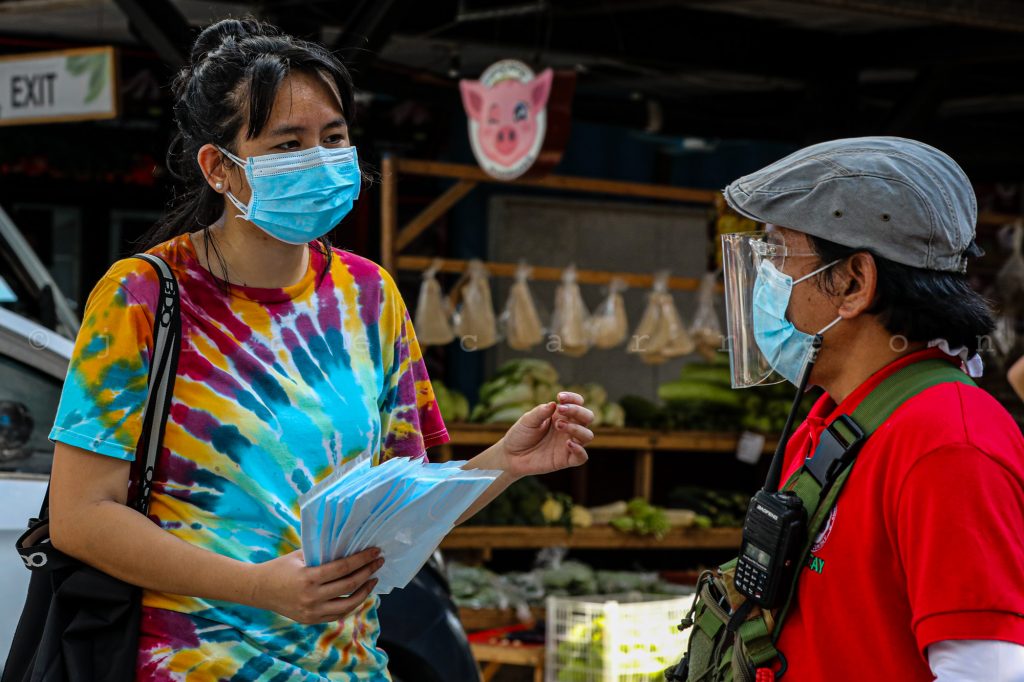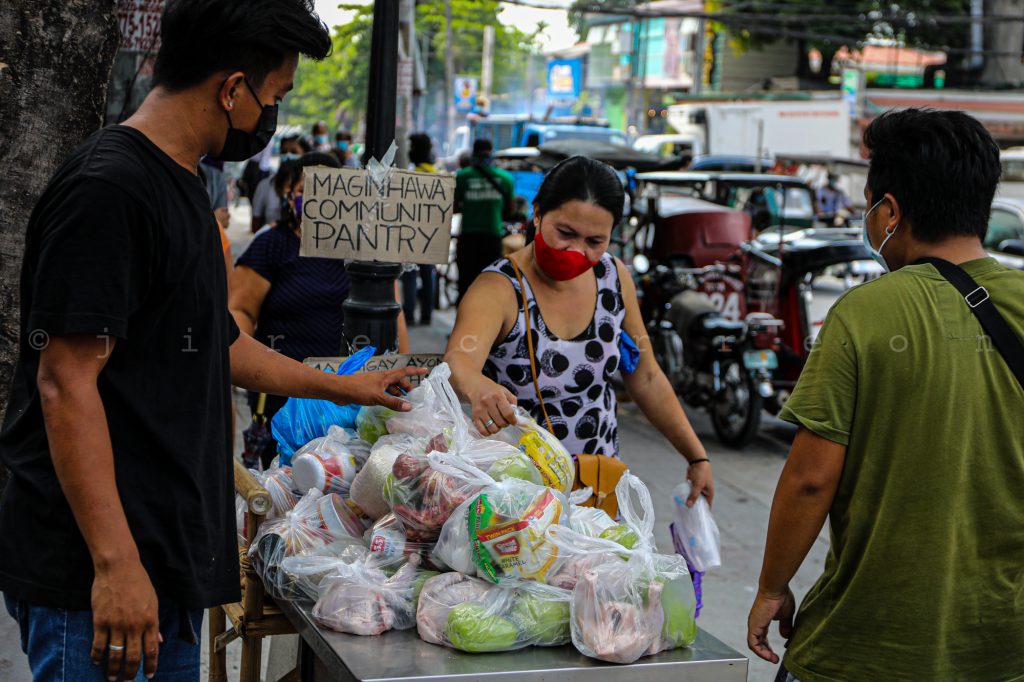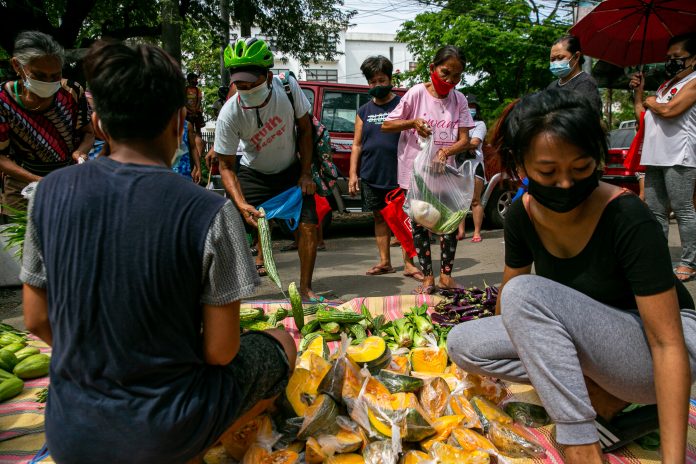Human rights groups decried what they described as the “red-tagging” and harassment of people behind the “community pantries” or food banks that are sprouting in the Philippines in the past days.
In a statement, Human Rights Watch called on authorities “to stop targeting organizers of ‘community pantries’ … where every one is enjoined to ‘give what you can, get only what you need.'”
The group said the initiative has been an “incredible demonstration of compassion by Filipinos at a time when … many poor families are suffering from lack of food and household resources.”
“The community pantry movement should be extolled, not vilified,” read the statement.
Human Rights Watch warned of the dangers of letting the “red-tagging” pass, adding that “red-tagging,” which has been used against leftist activists and critics, often end with violent results.
“Many of those red-tagged have ended up harmed or killed,” said the group.
The first “community pantry” that was set up in Quezon City announced on April 20 that it is temporarily stopping its operations due to alleged “red-tagging” activities that threaten the safety of its volunteers.
In a Facebook post, Ann Patricia Non, the organizer of the “community pantry” in Maginhawa Street, raised concern on her personal security after policemen asked for her affiliation.
“We are saddened because we could not distribute the goods that we have prepared for the day due to #RedTagging,” said Non in her post.
The government’s National Task Force to End Local Communist Armed Conflict earlier shared posts warning the public that the “community pantries” might be used by the rebels to recruit members.

Interior Secretary Eduardo Año, however, said he has not ordered the Philippine National Police to look into the community pantries.
“I have not ordered the PNP to look into the community pantries around the country. The community pantry has been a traditional practice in our country,” said the government official.
Año said community pantries should be “encouraged and supported” and authorities could only intervene to ensure public health protocols are complied with.
“Organizers must adhere to existing laws and local ordinances especially those issued to prevent the spread of COVID-19,” he said.
He said the police or local officials “may just come in if there is any violation of law, if there are complaints from the community, or if the organizers seek their help.”
Año said organizers should consult with their respective village officials if permit from local authorities would be required.
Even the presidential palace has earlier lauded the “community pantries” describing it as showing “the best in us during the worst of times.”
“We think these community pantries show that bayanihan (cooperation) spirit reigns, not bickering,” said presidential spokesman Harry Roque.
He praised community pantries as a “showcase of the best in Filipino character” and saluted the Filipino spirit for its tenacity despite great challenges.

Various church groups have also supported the initiative.
The social action arm of the Catholic Church in the Philippines has encouraged the public to support community-based responses to address hunger during the pandemic.
Bishop Jose Colin Bagaforo, national director of Caritas Philippines, said the setting up of “community pantries” proves that communities can serve as “first responders to address hunger and food insecurities.”
At least 80 community pantries have already been set up in various places in Metro Manila and other provinces across the country.
In April 2020, Caritas Philippines launched “Kindness Stations,” a national program aimed at advocating for community-based response that empowers members of the community to “take what you need, spare some for others, and give what you can.”
The Caritas Kindness Station is now being implemented in more than 15 provinces.









